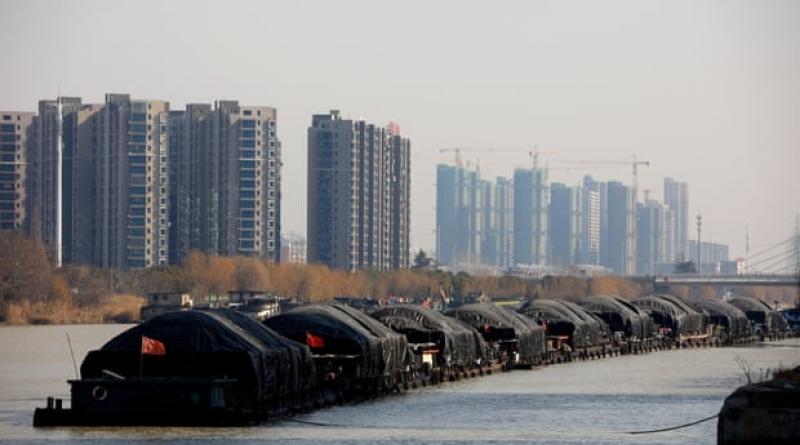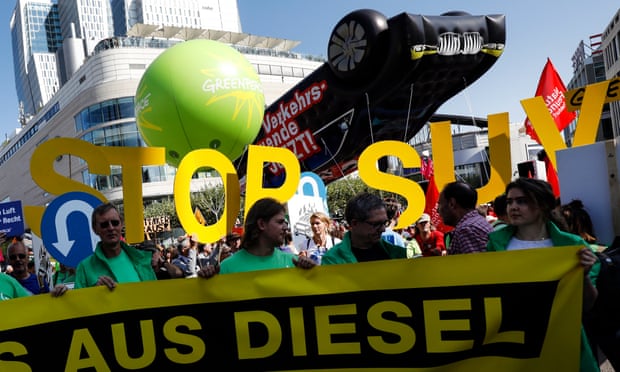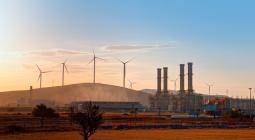World needs to kick its coal habit to start green recovery, says IEA head.

Energy watchdog’s Fatih Birol says shift away from coal in key regions needs to be made a global priority.
Dependency on coal in key parts of the world is preventing a global green recovery from taking off, and the shift away from coal needs to be made a global priority, the head of the world’s energy watchdog has said
Coal still forms a key part of China’s energy system, and plans are in train for further coal-fired power plants in the country. India is also heavily dependent on coal, and despite increasing its renewable energy generation has shown little sign of reducing its use of the fossil fuel.
China’s greenhouse gas emissions last year climbed higher than their 2019 levels, preliminary data shows, in a blow to hopes that the recovery from the coronavirus pandemic would set the world on a greener path.
Fatih Birol, the executive director of the International Energy Agency (IEA) and one of the world’s foremost energy economists, said: “Our data indicates a strong rebound in China’s emissions in the second half of 2020. From April onward, monthly emissions in China surpassed the levels of 2019. If this strong trend is confirmed through December, Chinese emissions for the whole of 2020 may well catch up with the 2019 level, despite the sharp decline in the first quarter of 2020.”

China approved more new coal-fired power generation in the first half of last year than in the whole of the previous two years, according to Global Energy Monitor and the Centre for Research on Energy and Clean Air. China is the world’s biggest emitter, and if its efforts to recover from the economic shock of the coronavirus pandemic are focused on propping up its existing economy, rather than fostering green growth, global emissions will be strongly affected.
“This is not good news at all,” Birol told the Guardian. “Many countries believe [coal] is still a cheap and domestic source of energy generation, and more importantly, in many countries coal is still the largest employment source.”
He pointed to India, where coal is a huge employer. There are more than half a million miners in the country, and more employed indirectly, in energy generation and on the railways, for which coal is the biggest source of freight.
China, India and others must grapple urgently with their coal use, said Birol. “The challenge will be how we can find ways to an early retirement of coal plants – this is absolutely critical,” he said.
If the same pattern of continuing investment in coal and other fossil fuels is followed in other key emerging economies, such as in Indonesia, where coal use is also heavy, then the chances of a global green recovery will be much reduced, according to Birol.
The swift acceleration of carbon dioxide output after the coronavirus lockdowns was a warning that the global recovery from the pandemic would cement higher greenhouse gas emissions for the future if urgent action was not taken, he said. Governments should choose to push for green energy in seeking growth to lift their economies out of recession, he added, because “wind and solar are the cheapest sources of energy generation”.
Birol warned last summer that the world had six months to change direction and refocus on a green recovery from the pandemic. But although much of what has happened since was of concern, he said there had been positive signs. Fossil fuel subsidies had fallen globally from about $330bn (£240bn) to $200bn (£146bn) a year, and the share of clean energy investments had risen from one-third of all energy investment five years ago to about two-thirds today, he said.
“Some countries did listen. They have done a good job, and have followed a more sustainable path. But the majority of countries did not.”
Even in countries where green measures were being highlighted, there was no room for complacency, Birol said. He pointed to the massive growth in greenhouse gas emissions from SUVs, which make up half of all car sales around the world, with disastrous effects on current and future emissions. “The share of SUVs of total car sales has skyrocketed,” he said. Stopping that surge from undermining the climate fight was up to politicians, he added. “Governments have to find financial instruments to support the good and make life difficult for the bad.”

Many countries are now grappling with a second wave of Covid-19 infections, and while vaccines are being rolled out, new variants are also threatening across the world. Countries are still facing huge economic upheaval as a result of the pandemic. But Birol urged leaders not to lose sight of the need to step up their green ambitions. This was a “once-in-a-generation opportunity” to reset the global economy on a path to net zero emissions, he said, adding: “I don’t think it is too late for a green recovery.”
The actions of the world’s two biggest emitters over the next few months will be key. “China has its next five-year plan,” said Birol, referring to the Chinese government’s economic blueprint, which is being finalised in Beijing and is expected to be unveiled in March. “That can include green energy policies.”
China’s plan will be crucial, because coal-fired power plants built now would have an expected lifetime of 40-50 years, which could dash hopes of the country meeting its stated target of net zero emissions by 2060. “It is much more costly to phase out [plants] before their economic lifetime is over,” said Birol.
Joe Biden in the US also had an opportunity to shape the global response, Birol said. The new president will host a global climate summit on 22 April, at which the US plans for emissions cuts within the next decade – known as a nationally determined contribution or NDC under the Paris agreement – are likely to be a focus, along with the his ambition to focus US stimulus spending on kickstarting a low-carbon economy.
Birol said: “I expect in 2021 the US, Japan and South Korea, as well as some emerging countries such as India, will put clean energy technologies at the heart of their economic recovery. To reach net zero, and their climate ambitions, and to prepare their energy sectors for tomorrow.”
1 February 2021
The Guardian





